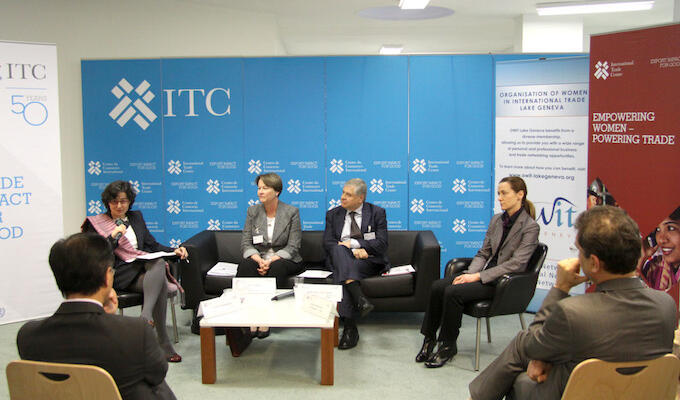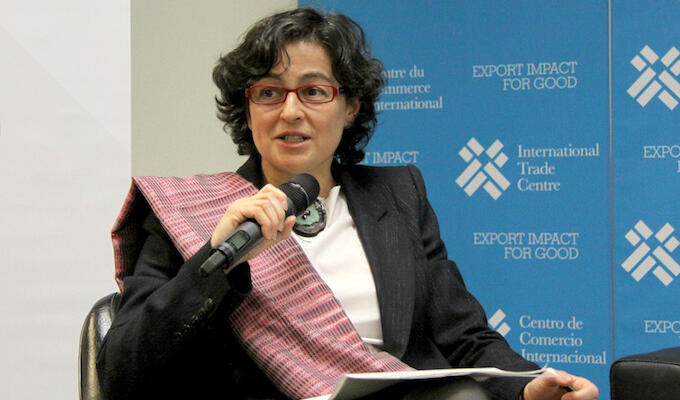

Businesses can play meaningful role in socio-economic growth
It is important for companies to create shared value by playing a role in advancing socio-economic development in societies, said the Executive Director of the International Trade Centre (ITC) Arancha González. She emphasized that creating economic value should be at the heart of a company’s activities.
Speaking at a panel discussion to commemorate International Women’s Day at the ITC on 4 March 2014, Ms González said it is not enough for companies to sign on to the UN Women’s Empowerment Principles aimed at promoting women in the workplace, marketplace and community.
‘This commitment should translate into opportunities for women,’ said Ms González. ‘We must make sure that more and more companies sign on and integrate this policy of gender equality in the workplace. We work upstream to ensure we build an environment in which women are involved in the value chain, and we work with the public and private sectors to promote coherent policies that empower women.’
Nestlé, a Swiss multinational company which is a signatory of the Women’s Empowerment Principles, has focused on improving nutrition, access to clean water and world development as part of its corporate social responsibility across the globe.
‘Part of our business model is to promote sustainability,’ said Janet Voûte, Nestlé Vice President of Global Public Affairs. ‘Sustainable agriculture and world development is the way we do business in our production of coffee, chocolates and dairy products where there is a win-win situation which provides livelihoods to farmers. And you can only create shared values in the agricultural chain by supporting products made by women.’
Also addressing the panel discussion on the theme, ‘Creating shared value: A role for women entrepreneurs in developing countries’, the Executive Director of the Global Alliance for Improved Nutrition, Marc Van Ameringen, stressed the importance of food security and nutrition, and the role women can play in nurturing children and their families. He cited the case of the difficulties faced by women farmers in Africa in gaining access to farmland and financing which have resulted in their lack of productivity compared to male farmers.
‘There are structural issues to deal with, including the need to look at the regulatory framework to achieve changes that would facilitate women in agriculture gaining access to finance and support services and facilities such as training, education, access to business premises,’ said Mr Van Ameringen.
If women are active in society, then they help to foster a healthy society, said Ms Nasya Dimitrova, Co-President of the Organization of Women in International Trade. She said the organisation aims to support women in empowerment, business development and international trade.



